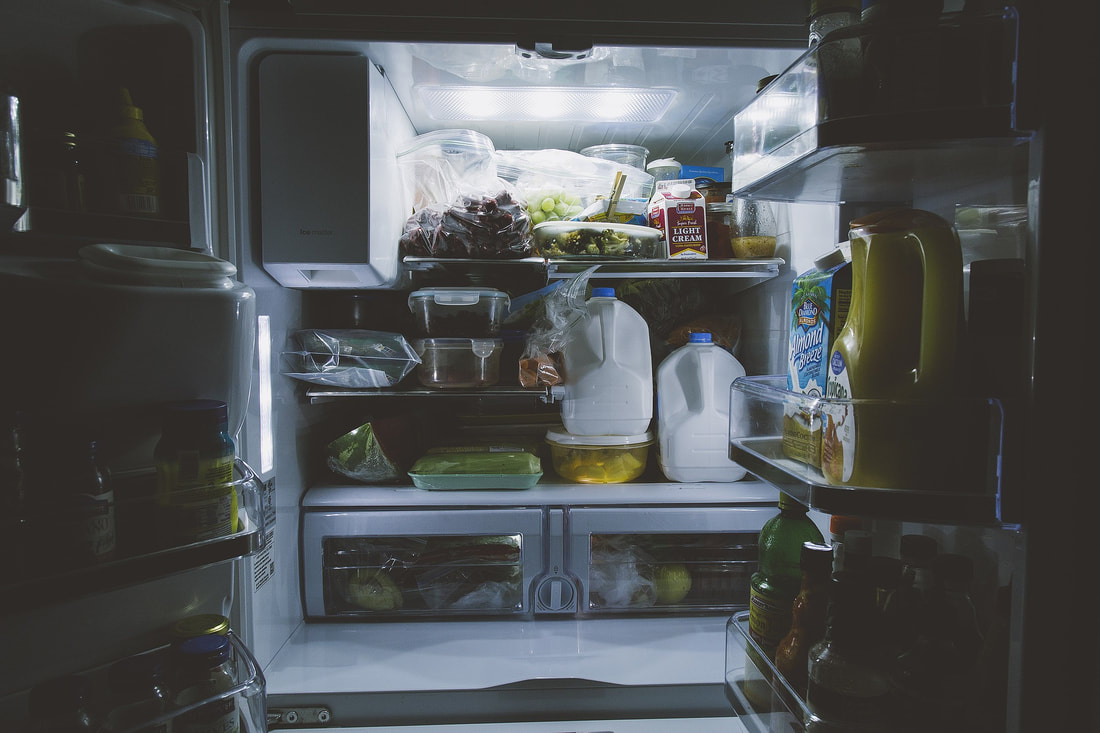|
The human civilization has witnessed a rapid rate of growth and advancement in technology since mid-20th century. Of course, the industrialization has made our lives plenty easier than what it was before it, but at what cost? The average temperature of the surface of the Earth has risen by about 1.62 degrees Fahrenheit[1] (or 0.9 degrees Celsius) over the last century and the rate at which the temperature is rising doesn’t seem to be slowing down. In fact, 2016 was the warmest year ever.[2] These rising temperatures are causing glaciers to melt and sea levels to rise (by nearly 8 inches over the last century!)[3] These are the adverse effects of global warming caused by the trapping of harmful chemicals like carbon dioxide and carbon monoxide in the atmosphere, depleting the ozone layer and allowing harmful radiation from the sun to enter. While you cannot single-handedly stop global warming overnight, you can play your part in trying to control it by recycling your household electronics. You’d be surprised to find out how many electronic devices you no longer use can be recycled or reused. If you’re clueless as to how you can help make a difference, then read on. What is e-waste?E-waste is one of many terms used to describe electronic waste. Many of these electronics are made of components which have high concentrations of harmful chemicals such as: ·Lead ·Mercury ·Cadmium ·Plastic polymers ·Flame retardants ·Chromium These chemicals are very harmful to the environment and so, it’s important that you recycle or dispose these components off in ways that aren’t detrimental to the environment. Everything from your television and your computers to your smartphones and refrigerator contain these harmful substances. You should throw these away irresponsibly or send them to landfills as this can cause the harmful chemicals to seep out of the devices and into the soil and water. Reusing Old ElectronicsThe first step to take when recycling your e-waste is to see if you can salvage any working electronics or electrical appliances that can be reused in one way or the other. If you have an old computer lying around, you can give it to one of your children or dedicate it to your home theater setup. Another great way to deal with old electronics that you no longer require is to sell them. There is quite a market for used electronics, put up listings of your old devices on Craigslist to make some extra money while getting rid of clutter. If you find something that cannot be reused in one way or the other by yourself, it’s possible that others could make better use of it so consider donating these items to those who cannot afford it and the lesser fortunate. Many orphanages and schools accept electronic donations. RecyclingIf you cannot find anything that can be reused in any way or are non-working, then you’ll have to be responsible with how you deal with this electronic waste. First, you’ll need to ascertain if the items you have are hazardous or not. Here’s a list of some items that contain hazardous components: ·Displays: projectors, televisions of any kind – plasma, LED, LCD, etc. ·Computers and their peripherals including mice, keyboards, flash drives, hard drives, CD's. ·Phones – landlines, smart phones, door phones. ·Cameras ·Thermostats and automation technology ·Speakers, VCR's, Blu Ray players etc. ·Devices containing cathode ray tubes (CRTs) ·Microwave ovens ·Refrigerators ·Air conditioning units ·Batteries of all kinds It’s a good idea to make sure you segregate your electronic waste by determining whether they are hazardous or not. Not all electronic and electrical waste is hazardous, some devices that are not hazardous include: ·Lamps ·Heaters and water heaters ·Toasters ·Stoves and cook tops ·Hair dryers It’s not the best practice to just dump these in the bin either, you’ll still have to recycle these because they contain plastics and other potential harmful materials, even though they might not be toxic. Some states like California have laws in place that forbid residents from improperly disposing electronic waste, while other states have laws that mandate electronic recycling and e-waste recycling; acting in contravention of these laws can attract legal consequences including fines, penalties, and in some cases even imprisonment. You’ll need to recycle the hazardous electronic items by taking them to a recycler that is specialized and certified to recycle hazardous electronics. How to choose a recycler?Congratulations on choosing to be a responsible citizen by opting to recycle your hazardous and non-hazardous electronic waste. Now, you’ll have to find yourself a recycler that is well-equipped to handle all or most of your electronic waste. Make sure you go to a recycler that accepts household volumes of electronic waste as there are some recyclers who will only accept large amounts of e-waste in the order of many tons, these recyclers cater to large businesses and industrial applications. There are some things you need to ensure before you decide on which recycler’s services you’re going to use: ·Make sure they don’t just export the e-waste to developing nations in Africa and Asia, and actually recycle them. ·Ensure that they have a well-equipped facility that is capable of handling CRTs, computer peripherals, appliances with heavy metals and toxic chemicals including chlorofluorocarbons. ·Ensure that they do not export electronic waste[4] or dump it in landfills as this would be a serious violation of laws that tackle waste management issues and would also mean that the recycler’s methods don’t meet certification requirements. Exporting waste to other countries without legislation that ensures proper disposal to save costs can cause more harm than good and so you should steer clear of any company that exports waste on the pretext of recycling. ·They shouldn’t employ child labor or prison labor like some recyclers do to save money. ·Their methods of waste management should comply with local, federal, and international legislation and conventions. ·The easiest way to ensure that your e-waste is being recycled in the most responsible way is to find an e-Stewards-certified enterprise for your recycling needs. e-Stewards is the industry standard for recycling and is also compliant with the ISO 14001 standard. Here’s a link to finding e-Stewards-certified recyclers around you: http://e-stewards.org/find-a-recycler/ How to Prepare Devices for Recycling?·You can prepare your old devices for recycling by deleting your data and resetting them to factory settings to prevent loss of data, identity theft and other such unwelcome situations. ·When dealing with oven recycling, unplug them beforehand to let them cool down. ·Cleaning the appliances or devices is not necessary, but welcome nonetheless. ·Most mobile devices like laptops, phones, and tablets use lithium-ion batteries and need to be packaged specially before being transported for recycling. If your device features a removable battery, remove it beforehand. ·Check with your phone manufacturer to see if they offer a recycling program. Many manufacturers like Apple do offer this service.This is the most efficient way to deal with old phones, as the manufacturers are able to salvage parts from old phone and reuse them to make new ones. ·Recycling CRT monitors requires extra care because the CRT glass that these contain are coated with chemicals that are very harmful to the environment and so they’ll need to be processed in a specialized facility that is designed to handle these applications. ·Refrigerator recycling will require you to defrost them beforehand. Air conditioners and refrigerators contain coolants like Freon and if your recycler does not remove Freon themselves, you’ll have to have a professional do it for you before you can recycle it. Refrigerants used by these appliances contain chlorofluorocarbons (CFCs) which have been found to have very serious effects on the ozone layer, so make sure your recycler is equipped to handle these chemicals. ·More than 22 states in the United States have banned dumping of appliances in landfills. ·Special care should be taken when handling and recycling batteries, especially rechargeable ones because they contain heavy metals that are detrimental to the environment and are very toxic to humans and animals. These chemicals can cause serious health issues if they find their way into water or soil, contaminating it and making any food grown on it unfit for consumption. ·Never dispose electronic waste in curbside recycling bins as these are not intended for this kind of waste. Recycling can seem like a chore, but it is the need of the hour and is a legal requirement in many states and regions around the world. Reusing and recycling is the best way to deal with old electronic waste as it reduces clutter while helping save the fast-deteriorating state of the environment. You should make sure that the recycler that you choose is responsible in the way it manages the waste and the best way for you to ensure this is to check if it has all the necessary certifications, is registered to operate as a recycler. We hope this article could help you do your part to save the environment from the harmful effects of global warming so you and many generations to come can enjoy a beautiful earth.  [1]https://www.ncdc.noaa.gov/monitoring-references/faq/indicators.php [2]https://www.giss.nasa.gov/research/news/20170118/ [3]10.1073/pnas.1717312115 [4] https://www.theguardian.com/global-development/2013/dec/14/toxic-ewaste-illegal-dumping-developing-countries
2 Comments
Leave a Reply. |
AuthorAVA Recycling Blog Archives
May 2020
Categories |

 RSS Feed
RSS Feed